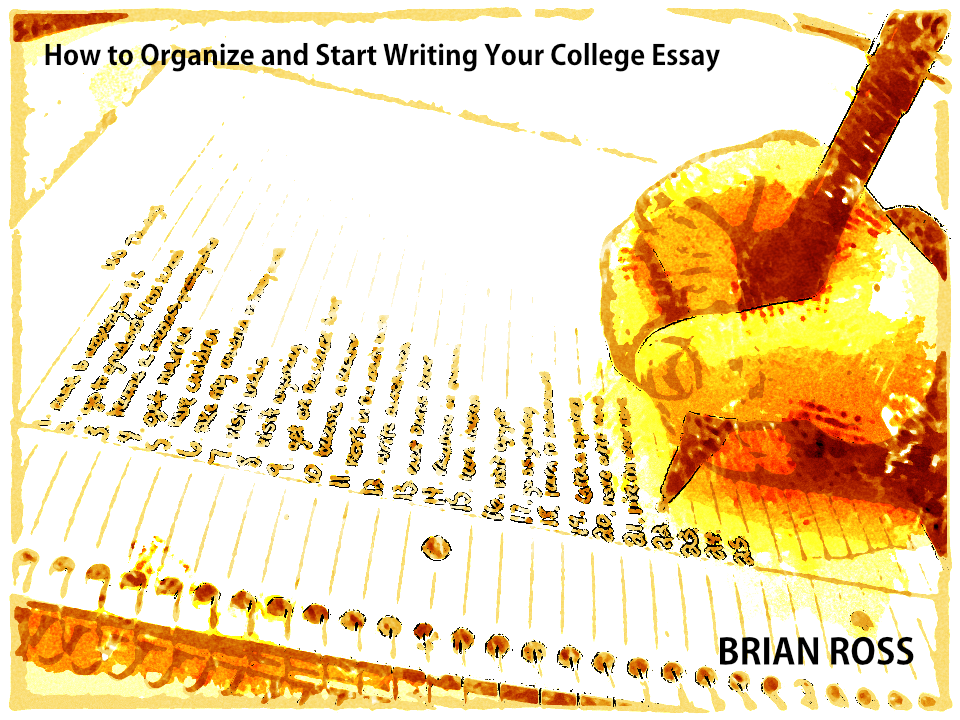 REVISED 08.17.2022.
REVISED 08.17.2022.
Most students are taught how to write persuasive essays, and analytical papers. Very rarely are you taught how to write something autobiographical, which is what a college essay is all about.
Writing an essay that can be digested by a reader moving through your file in 1-3 minutes? None of y’all learn this.
Yep. Your life story, in 180 seconds.
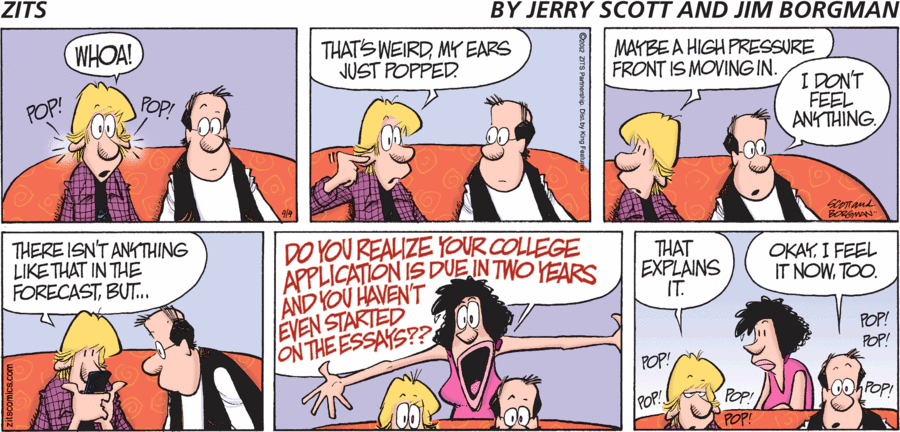 The Common App’s essay prompts are an attempt to help you focus your writing. They can also distract you from telling your story, as you focus on the prompt.
The Common App’s essay prompts are an attempt to help you focus your writing. They can also distract you from telling your story, as you focus on the prompt.
We tend to use the open prompt, because we want you to have a unique “thumbprint” that is absolutely y-o-u.
Honesty.
It’s what makes your college essay stand out. It’s what gives you a “thumbprint” that makes you the only “you,” in thousands of applications. Save your tales of great deeds in debate, or music, or on the stage, for the supplemental questions, where you can discuss achievements, ambitions, and goals.
There are advisors who tell you write two or three to use as your primary essay. Nonsense. We’re here to get in as many COHORTS about you, as we can.
There is one you. Several people very similar to you, in cohort terms. So how do you stand out?
Write about you, and your real world, HONESTLY. You are telling the admissions officers what they really want to know: How you fit into their needs for a diverse student body.
Colleges work hard to put together a very diverse “city” of people from different backgrounds and interests.
College secret: The majority of your undergraduate education is about growing up, finding out who you are as a person, on your own for the first time, than it is specifically about your major, or what you want to be when you get out of school.
Read up on the cohorts article, before you jump in further, here. Your main essay is the ONLY WAY that they have to see how you fit into that personality/social mix. It’s also the only way for them to understand you, as a person; to know what is going on in your world.
It helps fill in questions, about the rest of the information that they are provided, like your grades, extra-curriculars, recommendations, etc.
We have a better suggestion, as to how to do this. Don’t write and write and write, getting frustrated.
Start with a series of lists.
But first, two words to your parents:
RESPECTFUL BOUNDARIES
I’m the father of five, and I’m very involved with my kids, so please understand, if you are very involved with YOUR kids, that this is coming from one of you: Please BACK OFF, during the essay process, even if you’re a great writer and/or editor, unless you are asked to participate, by your student.
These lists may, or may not, be suitable for parents. Your kids are young adults. They are about to go off to college, where, if this is your first time at the rodeo, you will find out, thanks to FERPA, that they have to agree to let you see any of their records, including grades, and even their school bills.
They are individuating. They sometimes have “takes” about their lives, their school, daily life, family, etc. that may not be in line with your worldview or your view of them.
In order for these lists to work for your kid, they have to be completely comfortable with putting down ideas that they may share with NO ONE else, on their essay file, so they can sort out what they tell the college. The more honest the essay, the better the read. College readers are REALLY good at sniffing out essays that tell them what parents and paid professional college prep people want them to hear.
So mom, dad, you are hearing it here: This is one space where if your student wants to share, great. If they don’t, forcing them to do so can actually hurt their chances of success, in writing an essay that opens all doors to them.
THE LIFE LIST
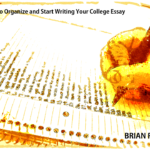 Grab a piece of paper. Don’t try to write sentences. Make a list of events in your life that you think have shaped how you see the world. This is not a list of your classes, or the achievements, in school, or social clubs. Something in a class, or social club, could be on your list. It could be a moment with a family member, or a teacher. They don’t have to be connected, or linear.
Grab a piece of paper. Don’t try to write sentences. Make a list of events in your life that you think have shaped how you see the world. This is not a list of your classes, or the achievements, in school, or social clubs. Something in a class, or social club, could be on your list. It could be a moment with a family member, or a teacher. They don’t have to be connected, or linear.
Anything, for now, that you can remember; that are significant. Don’t try to hide things from the colleges, either. If you had to deal with a string of foster homes, or your best friend died? That is something that shaped this time of your life. Tell them about it!
It might look like this:
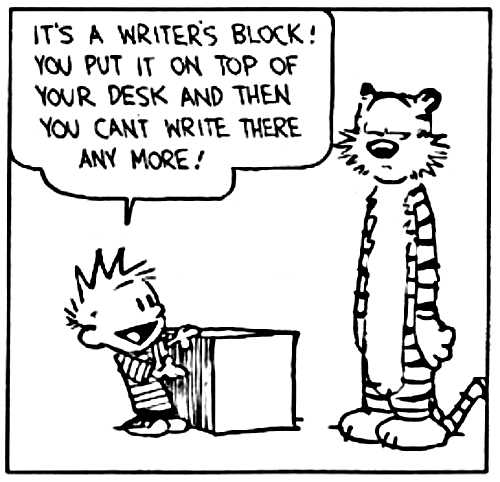 Went to All-State
Went to All-State- Parent/close relative passed
- Got my braces off
- Mom realized that I’m not just a kid
- Adventures in driving
- Dealing with a serious personal life challenge (Physical disability, emotional problems, social issues)
- Mr. Worther gave me a second chance
- Karaoke night with my brothers
- Surfing was not for me
- A family/living issue (Coping with substance abuse, life as a foster child, etc.)
- Stuck on the boat when the motor slipped off
- Getting right with Maya after I screwed up
- Discovering robotics
- A major family crisis (Lost a home/apt/farm; A family health crisis; etc.)
- Summer in Maine and the clambake
- TRAVEL and your experiences from it
- Study Abroad – What did you learn about your life from it?
- Going to games with Dad
- Why we all argue so much
- Julie has to be so freakin’ perfect all the time
- Working with kids at a school or summer camp
- Helping the elderly or infirm
- Helping at Sunfest
- The bowling disaster
Put it aside. Done for the day.
THE CHARACTERISTICS LIST
 For the purposes of this essay, imagine, instead, that you’re writing a play, or a short novel. Who is your protagonist, your character? This is probably the toughest assignment. Who are you, for real? Not the person that you put out there, for the public to see, although that may be the same, but who are YOU going forward, in your life. Show them the person whom you want to project, as going to the college. It doesn’t always have to be sunny and good, either. If you are someone who is building their identity, right now, in any number of ways, that’s a fair thing to add to your characteristics list.
For the purposes of this essay, imagine, instead, that you’re writing a play, or a short novel. Who is your protagonist, your character? This is probably the toughest assignment. Who are you, for real? Not the person that you put out there, for the public to see, although that may be the same, but who are YOU going forward, in your life. Show them the person whom you want to project, as going to the college. It doesn’t always have to be sunny and good, either. If you are someone who is building their identity, right now, in any number of ways, that’s a fair thing to add to your characteristics list.
The biggest thing here is to remember that this is not yet stuff for publication. This is purely for you, so there is no judgment here, and no need to worry. Write it, don’t advertise it to your friends, or siblings, or parents. Keep it someplace safe.
People write some amazing, and pretty compelling, essays when they’re honest about themselves. Since this will be read by people who don’t share it with a soul, outside of the admissions office, you should relax! Really do some personal reflection.
This may be the first time that you’ve ever thought about a lot of this stuff. You’ve been so busy living your life, that you haven’t stopped to take stock of what it all means, until now.
Some of you are highly introspective. You could write a book about your life already. A sentence or War & Peace, go through this exercise over a couple of days. Give it some thought.
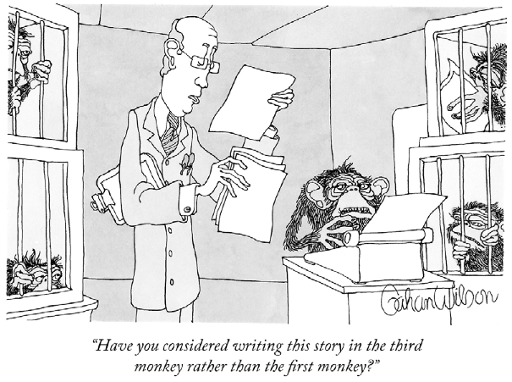 A lot of these topics are places where you will have changed, and grown, over the years. They form a big piece of your autobiography.
A lot of these topics are places where you will have changed, and grown, over the years. They form a big piece of your autobiography.
To make a list of your characteristics that might play into the essay, consider these dynamics:
- Social – Are you outgoing or introverted? Do you like or loathe people? Are you independent, or dependent? Is your idea of a great evening a party, hanging with a few close friends, or just hiding with a good book, or a tablet, or gaming?
- Intellectual – Are you a thinker, or a doer, or both? Does your rational side always have control? Do people come to you for help with homework, life problems, etc.? Do you feel like there is something about the world that you really “understand;” that you feel driven to learn more? Or is knowing something less important to you? Are you the rational skeptic? The iconoclast?
- Emotional – Write down ideas about your emotional being:
- Do you find that you lead your life with your heart first, and your head second?
- Are you attuned to other people’s emotions, and emotional needs?
- Are you the shoulder that people lean or cry on, when things aren’t going well?
- What is YOUR emotional state? Are you generally a happy person or sad?
- Are you generally fearless, or fearful? How has that defined the choices that you’ve made in high school? How do you WANT TO BE, going forward into college, looking back at how you’ve been, in middle school and high school?
- Physical – Write down ideas of how you are seen in the world, as a physical being. How do you see yourself? How do people see you?
- Are you an athlete?
- A couch potato?
- Tall, short?
- Proud of your curly hair?
- Wondering why you had to have freckles?
- Is your physical appearance something that you think about regularly, or infrequently?
- Is there something about the way that you dress that you do consciously to distinguish yourself, in some way? It doesn’t have to be highly visible, like changing your hair color. It can be something subtle, like a pair of socks you wear on test day, or a hat that means something to you, when you put it on (Belonged to a loved one, a memento of a time in your life).
- Is there a physical characteristic of you that it strongly tied to your identity? I read an essay by a Lebanese young man whose parents were immigrants. He was always embarrassed about his nose. People picked on him for being different in the public elementary school, where his parents had put him. He used that to tie together his cultural history, his family heritage, his life as an “average” first generation American, and all of the things that he had done.
- Identity – How do you identify yourself? This crosses a whole lot of labels, but, knowing what labels you live with now, and what labels you want to live with going forward, are a big part of college life, and your growth as a person. There are no dumb, or bad, choices here. Write them all down.
- Do you strongly identify with your race, or religious affiliation?
- Are you a huge fan of a sports team?
- Are you a member of an organization like a choir or a band or the Boy or Girl Scouts or a bowling team?
- Are you very connected to your family, your family’s heritage, even if it’s not a race per se?
- In high school, you may have been the “nerd” or the “jock” or whatever, but that does not necessarily define you as a college adult, unless that works for you.
- Is there something emotionally that you see changing as you get out on your own?
- Is your gender a big part of your life, or identification with gender?
- Do you see yourself largely staying the same, or do you think that you will identify differently in the future?
Writing down ideas will help you to sort out a lot of the “who” of the character that you’re going to write about, in the essay. This is FOR YOU. You do not have to show it to your parents, your guidance counselor, or a college advisor. It’s just to get your head around how to talk more honestly about yourself, and the life stories that will make up the “scenes” that give a reader a view of you.
Let this sit for a day.
HABITS, HOBBIES, TRADES & TELLS
 Your school record tells people a lot about you academically, and may hint at your passions by your choices of both curricular and extracurricular activities in clubs, band, student government, etc. you can make your last list of personal things you do:
Your school record tells people a lot about you academically, and may hint at your passions by your choices of both curricular and extracurricular activities in clubs, band, student government, etc. you can make your last list of personal things you do:
- Habits – Are
 you a creature of habit, or do you wing it? If you have any personal customs or rituals that you do, write them down as part of this list.
you a creature of habit, or do you wing it? If you have any personal customs or rituals that you do, write them down as part of this list. - Hobbies – Do you do anything outside of school that might tell a reader in 2-3 minutes more about you as a person? Do you break away every weekend to jump in an airboat and hit the Everglades to go fishing? Do you canoe, hike, kayak, squirrel jump, skateboard? Barbershop quartet? Collect rocks, spoons, dolls, toy cars? Build scale models? All of these things are possible to add into your essay.
- Trades – Do you hold a job on top of all of your other school and home work? This is a good one, particularly for students that are seeking scholarship money, IF your job has taught you something about life, or about your direction/focus. Just write it/them down on a list for now.
- Tells – Like a poker game, what are “tells” that people read about you? Simple things. Can someone always make you laugh by doing something? Does something about life, family, the world get you energized, passionate, mad? Write those ideas down on this list.
Set the list aside for a day.
THINNING TOPICS
 Now look at the essay prompts for the application’s general essay. You will have supplemental essays as well for each school, but, for now, let’s focus on the primary essay. Pull out your lists, and look at the pieces of our jigsaw puzzle from the different lists. Can you pull together your life, habits and characteristics list and find some common thread that you can write about?
Now look at the essay prompts for the application’s general essay. You will have supplemental essays as well for each school, but, for now, let’s focus on the primary essay. Pull out your lists, and look at the pieces of our jigsaw puzzle from the different lists. Can you pull together your life, habits and characteristics list and find some common thread that you can write about?
The best essay prompt is the last one: Write anything about yourself. The other prompts? You tend to write too much about the prompt, and not enough about you, that has the COHORT VALUE that great essays serve up to readers. The more that they know how to plug you into their school, in terms of your personality, interests, point-of-view, etc., the more likely that you will use this essay, about YOU, as a person, to your best advantage.
REMEMBER that you talk about school work, projects, APs that kind of thing ELSEWHERE. Parents, and a few college advisors, are notorious for telling their kids to put a wash list of accomplishments into their essays.
DO NOT DO THIS.
Readers can pull those from your academic files. They are NOT what belong here, in your essay. It’s great to be proud of your five on an AP, but that isn’t what they need to know about you. They want to know who you are as a person.
So don’t try to sneak them in, either. “I was really frightened about taking Calc A/B at the beginning of the year but by the time that I got to the test, I realized how much I had grown in my understanding of math.”
Zzzzzzzzzzzzz.
I’m your reader. I’m your audience. I have 2-3 minutes to get interested in your life enough to advocate for you if your file falls into the “Maybe” pile. To believe in you, I have to find you interesting. You may not think so, but EVERY life is interesting. Every life. Those who succeed and those who fail at this essay are separated by one big word:
HONESTY.
The closer we get to honest and UNIQUE, your voice, your thumbprint, the better likelihood you will attract the positive attention from both reading algorithms and the human readers of your work.
write your life as…
 Now we can write a short outline of what we want to do, or we can just write a first draft of our story. It’s a STORY, meant to entertain and inform, told to a reader in a cubicle or office who reads THOUSANDS of them in a year.
Now we can write a short outline of what we want to do, or we can just write a first draft of our story. It’s a STORY, meant to entertain and inform, told to a reader in a cubicle or office who reads THOUSANDS of them in a year.
Just as piles of unmade scripts could build a skyscraper in Hollywood, there are tons of essays. So how do you stand out?
- Don’t be BORING – Your expository writing skills don’t help here. Pick up a good book or a magazine article. They almost always have a strong first sentence or two, called a HOOK. Make the hook great! Drama is a GOOD thing in a bio because most people write like a sleeping pill. You can cut through thousands of essays by grabbing the reader:
- “I have a big, brown, Lebanese nose. In elementary school, I HATED it, because kids made fun of me. In high school, though, my nose found a pair of Wayfarer sunglasses, and its own version of cool.”
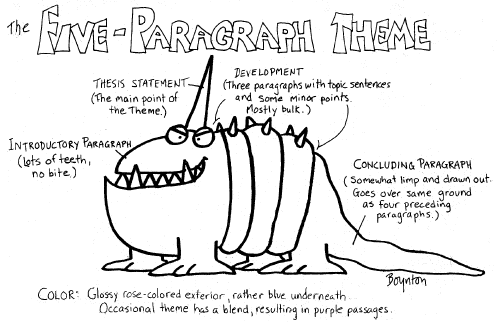 “When you’re little, everything looks so big and overwhelming. In high school, life can feel so stressed and overwhelming. After I graduate high school, I’m officially done with ‘overwhelming.'”
“When you’re little, everything looks so big and overwhelming. In high school, life can feel so stressed and overwhelming. After I graduate high school, I’m officially done with ‘overwhelming.'”- “I pulled and pulled on the outboard engine’s starter cord. It wouldn’t kick. The shore, with its towering condos, that shadowed the water, as the sun swiftly sank away towards the West Coast, was all shrinking dots on the horizon. The tide was pulling my little boat Eastward, out into the Atlantic. My cell phone? “NO SERVICE.” AT&T was not going to send the Coast Guard. Worry set in when the “Jaws” theme started playing on the theme-music channel in my head, as the sun set on the horizon.”
- To Thine Own Self, Be True – Be yourself. Are you funny? Be funny. Are you serious? Be serious. Use your Characteristics List to help you frame the tone of your essay.
- From your Life List, select an event, or series of related events, that will help you tell a story that is emblematic of you, how you handle life, that gives you the opportunity to show, rather than tell, how your habits and characteristics that you listed WORK. If you’re mellow, neurotic, funny, crazy, whatever SHOW IT THROUGH THE NARRATIVE. PUT US IN THE MOMENT OF THE STORY.
- Instead of “I’m OCD,” try: “Every brush, on my dressing table, has its place, and purpose. Each has to be exactly in the right place. My mom borrowed one, once, and didn’t bring it back. I just stared and stared at the hole. I got madder and madder, at this disruption in the personal cosmos of my room.”
- Instead of “I like sports, which is direct and boring, try: “Sunday morning starts: cold shower; skin-tight running gear; and baaad Nikes. I pound pavement!, Then, steamy sweat-remover. Last a big bowl of Cheerios, and Chris Berman ESPN, with takes and highlight reels, to catch me up, because mom won’t let dad pay for the game-day packages.”
CLARITY: THE READ FOR SPEED
Readers will go through your 650 word essay in one to three minutes. They do not sit around, much as your English teachers would like it to be so, to consider the beauty of your prose, much, these days. Computers do some, or all, of the scoring of your work, at many schools.
Some things, that you can do, to make your read a great one:
- Hit them between the eyes with a 2×4. Your opening should be short, one to two great, clever sentences that hook them. Something that references, or teases where you’ll be heading in the essay. An essay on how boring your life is, transformed with your 18th or 19th thought in the first draft, moved to the top: “Sometimes? I feel like I need to get into more of the right kind of trouble.”
- Don’t indent. The Common App doesn’t let you use it anyway. Double space after each paragraph.
- Understand that long paragraphs can be split into paragraphs and sub-paragraphs. Subconsciously all readers dread long huge blocks of text. Shorter paragraphs, and supporting sub-paragraphs, let the essay “breathe” better, and make for good flow.
- Don’t repeat words or phrases in the same paragraph, e.g.: “My uncle was my hero because he took me to the park. My uncle was a special person in my life. ” Pronouns like “He” work better. Repetitive words can cause the reader’s eye to “skip” when reading in a paragraph. If they pick up a cup of coffee, stopping, now to figure out which of the three “My uncle” sentences they left off on, they may have to go back to re-read. That never ends well for the evaluation of the quality of the read.
- Don’t get cute. Elusive paragraphs, that coyly lead up to your topic sentence, are annoying to a college essay reader.”It was the kind of thing that you just don’t see. A special moment…” blah blah blah for a whole paragraph, until you get to the freaking POINT!!I’ve tuned you out before I got to it. You’re also wasting your 650 words, with a lot of FILLER. Don’t be wordy. Computer systems score your writing, and detect it. Speed readers of essays detest wordiness, after 40 or 50 of them.
- Don’t make the reader “tense.” High school students are rewarded for writing in volume, with long, often lugubrious, pretentious, wordy sentence structure. K.I.S.S. Keep it simple, students. Avoid a lot of conditional verbs. Simple past, present, and future tenses work well for a speed read, most of the time.“As a matter of fact, I have thought, many times, that I would like to study how plants interact with light,” should read: “I want to study how plants interact with light.”
COMMA COMMA COMMA CHAMELEON: THE KEY IS THE THREE “P’s”
Punctuation, at a lot of schools, is not taught much, or enforced. The key, in high school, is to express yourself. In college? It’s to do that task WELL.
A sentence is simple: Subject-Verb-Object:
“I was free.”
We “dress up” our writing, with lots of detail, by using the Three P’s. They add dimensions of time, color, or character to a simple sentence:
- Prefaces – “For a time, I was free.” Prefaces are delineated by a COMMA, to show us where the qualifying thought ends, and the sentence begins.
- Parentheticals – “I was, for a time, free.”
- The EASY tests for a parenthetical, in a sentence that you’ve written.
- Is it part of subject-verb-object?
- Can I remove it from the sentence? “I was, for a time, free.” to “I was free.”
Can you read the sentence? Does it hold up?
Then you have a parenthetical phrase.
- The EASY tests for a parenthetical, in a sentence that you’ve written.
- Postscripts. – “I was free, for a time.”
- Postscripts appear after the object of the sentence (“free”).
- They are delineated by a comma, to show where they start, and stop.
- Remove them from the sentence, to test. Does that work? It’s a postscript!
FEEL THE PARAGRAPH FORCE, LUKE…
English has a written version, as well as a spoken version. In the spoken version, we use a lot of conjunctions, mostly “and,” to glue our thoughts together. Since the cultural revolutions of the last half of the 20th century, educators, in American secondary schools, have relaxed a lot of standards in writing, much to the dismay of higher educational institutions, and their faculty.
One giant block of text can truly terrify an admissions reader. It immediately says: “I have no clue how the written form of Enlish works.”
Just like conjunction Scotch tape, gluing sentences together with “and,” as we do when we speak,, the paragraph IS the cohesion of ideas, in the written form of the English language.
Best way to think of what a paragraph does? Like shots, in a movie, or television show. You have the “wide” shot, which establishes where the characters are, in space and time. The two-shot is a bit more focused. The close-up extremely focused. Together they create scenes. Scenes create the flow of the movie. Well phrased, they paint a better picture.
BAD
I went to the store and I saw my father standing in terror and there was a man with a gun standing there and I was terrified so I ran out, ran down the street and found Sheriff Budd. He’s a really big guy but he didn’t waste any time and took off running down the street until he got there and shot the robber before he could exit the store which was crawling with state cops a few minutes after he called it in.
BEST
I went to the store. I saw my father, standing there, in terror.
There was a man, with a gun, pointed right at him. The guy’s face was covered by a hoodie, and sunglasses. The gun, aimed gangsta style, sideways, was level with his head, inches away from my dad! I saw the fear, for me, all over his face.
My eyes went wide, with terror.
I ran out of the door, scared, and numb. I felt my feet pounding pavement, until I got to the Sheriff’s Office, down the block. I ran inside.
”Help me! Help me! There’s a man, with a gun, at the 7-11”
Sheriff Budd, a really big guy, who might have enjoyed a donut too many, in his twenty years on the force, bolted from his desk, like a track athlete. I followed him out of the door, as he raced back, towards the 7-11.
He drew his gun, as he saw the robber emerge, with my father, as a hostage, from the 7-11. The robber pointed right at the sheriff, and me!
I hit the ground, closing my eyes. Gunfire. Two shots. I heard a body fall.
I looked towards the door. The robber was dead. My dad was shaken, but alive. The other sheriffs rolled in. Then the state cops behind them.
It was over.
Note that SHORT PARAGRAPHS, with tight flow, are best for a speed read, like a college application essay. The brain “digests” sentences. You don’t shove a whole t-bone steak into your mouth and gnaw on it. Smaller bites of ideas, too, help. The end of a paragraph sums up an idea, or story. It gives the reader a stopping spot , to digest the words.
The next sentence allows us to group a whole new set of ideas.
If a paragraph is getting too long, then figure out how to split the idea down from a single paragraph into two, or more SUB-PARAGRAPHS, that help group the ideas in your story in a better way.
THE CONJUNCTION JUNCTION DYSFUNCTION
 Write, as you’ve seen in this article, and in the samples from student work chosen, in complete sentences.
Write, as you’ve seen in this article, and in the samples from student work chosen, in complete sentences.
You don’t need a lot of conjunctions, which are used in speech, in the written form of English. Paragraphs group ideas, not “and.”
-
WRONG: “I am very upset about the way that our government runs and I think that I would like to be a politician and maybe fix things because I have been very involved with student government and I think I could fix things.”
- CORRECT: “I am very upset about the way that our government runs. I think that I would like to be a politician one day, after working in campaigns, or as a staffer for a politician. I have been very involved with student government, where I was able to affect a lot of change in the way that we did things, even though people had been arguing for years about student body policy. It leads me to I believe that I could fix things in Washington, D.C. one day.”
Never start a sentence with a conjunction. Embrace the word “though” instead of “but.”
- WRONG: “But we were already heading to the mall.”
- CORRECT: “We were already heading to the mall, though.”
STYLE LANDMINES
 There are a few style issues that should also be considered when you start to write. These knock points off of essays with the scoring computers. It often ticks off human readers as well. They tend to know enough about writing to be hired to read writing.
There are a few style issues that should also be considered when you start to write. These knock points off of essays with the scoring computers. It often ticks off human readers as well. They tend to know enough about writing to be hired to read writing.
Unless you are providing an acronym (FBI) or some short stat (3 ft.), or some quick affiliation (Class of 1990), commas should be used to express an aside, sub-thought, or point of interest.
- WRONG: John (Who was suffering from a bad stomach) hurried to the bathroom;
- CORRECT: John, who was suffering from a bad stomach, hurried to the bathroom.
If you quote someone, and you can, and you need to add a word or change its tense to put it into the context of your sentence or to fill in the subject when a pronoun was used in the quote that you need, make sure that you use a bracket:
- ORIGINAL: “It was necessary when he took office to make his independence from the party clear.”
- MODIFIED: “It was necessary when [Abraham Lincoln] took office to make his independence from the party clear.
BEWARE THE SPELL & GRAMMAR CHECKERS
Don’t always believe the spelling, or grammar checkers. Google Drive, in particular, has some big flaws with wrong words, not understanding punctuation around parenthetical phrases, etc. It offers some terrible suggestions. So, even though the red line goes away, some words that are spelled correctly are still wrong in the context of your sentence.
- “High school” is still two words, even if Google’s spell checker disagrees.
- “I want to be a part of something” may correct to “apart,” but “a part” as in one piece of many, and “apart,” meaning to be separated from something.
- “I skate every day” may correct to “I skate everyday.” Everyday means ordinary, commonplace, as opposed to “every day” which means every individual day.
REDRAFTING IS 90% OF GETTING YOUR ESSAY PERFECT
 New habit that your high school probably didn’t teach enough:
New habit that your high school probably didn’t teach enough:
Redraft, redraft, redraft.
We write in stream-of-consciousness, on the first draft. Get ideas out. Often times, great ideas for our “hook” are buried in the third, or fourth, paragraph, on the first pass. You are NOT professional writers. Even the best professional writers will tell you that they have to draft, and redraft.
Ideas, in an essay, are like pieces of a jigsaw puzzle. So write. Take a break. Come back to it. Then take a look at it, switching from writer, to editor. Are there ideas, here and there, that should be re-organized? Fix all of those, in the next draft.
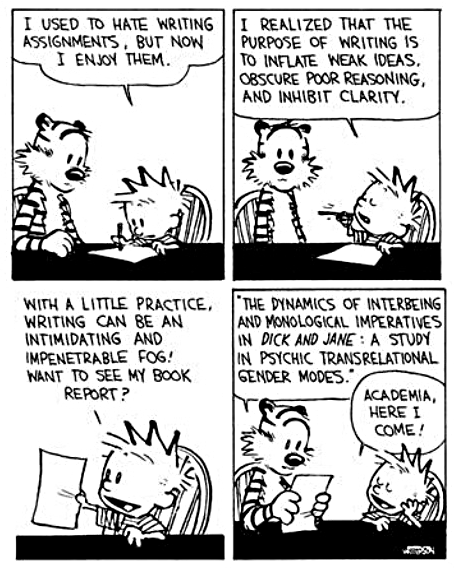 Tighter? That’s good! Next question: Is it too wordy? Could you have said something in a sentence better? Readers are short on time. Think USA Today for length, with richer vocabulary, not Charles Dickens. As you redraft, you also gain additional focus and clarity:
Tighter? That’s good! Next question: Is it too wordy? Could you have said something in a sentence better? Readers are short on time. Think USA Today for length, with richer vocabulary, not Charles Dickens. As you redraft, you also gain additional focus and clarity:
- ORIGINAL: “As a student of history, I’ve found, through the years, that there are so many moments in time that have a habit of repeating themselves, which is why humans seem to be doomed to limit their ability to learn from their mistakes and change.”
- DRAFT 2: “History, I’ve found in my studies, has a habit of repeating itself, because humans don’t learn from mistakes and improve.”
- DRAFT 3: “History has a habit of repeating itself. In man’s failure to embrace change, we lose the ability to evolve.
- DRAFT 4: “Repeating the mistakes of our ancestors is a failure of humankind to embrace change, that slows our evolution.”
One in millions of you is good enough to do a single draft. If you think that’s you, then it is not you. The people who can do it are usually perfectionists and still will want to redraft this essay three, or four, times. Don’t be impatient. This is one of the most important pieces of writing you will ever do in your life.
Get it RIGHT.
